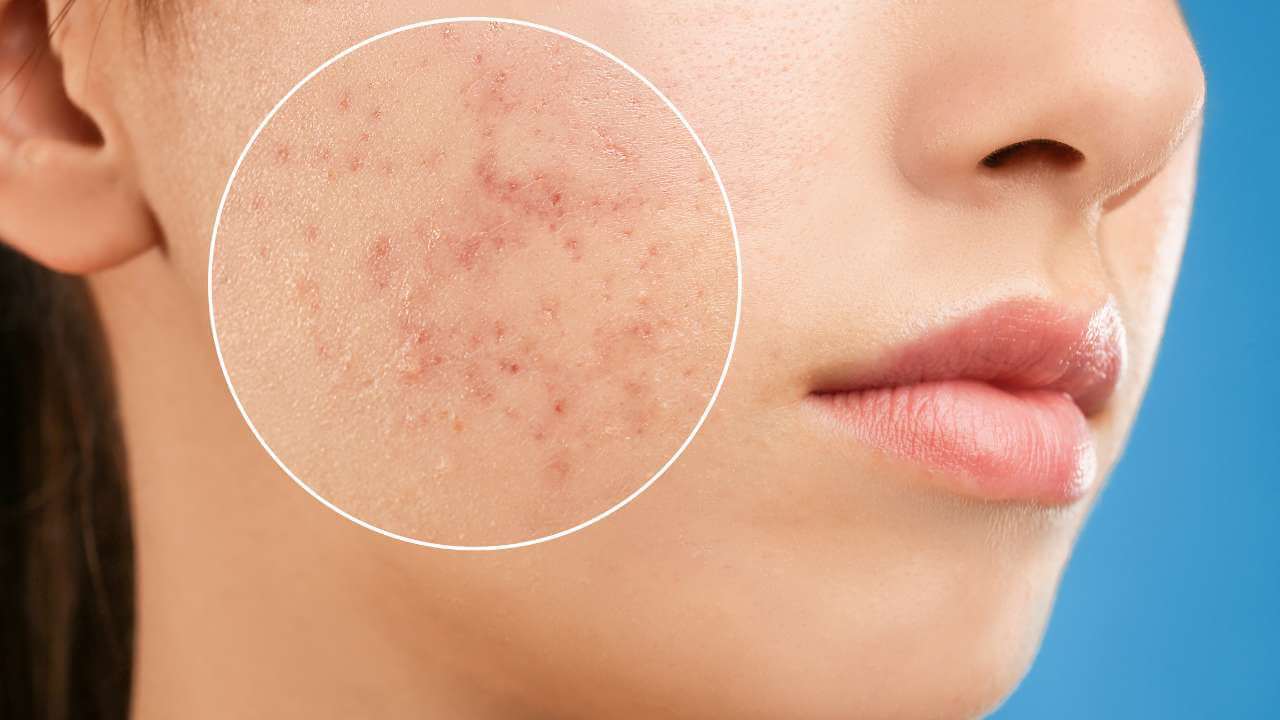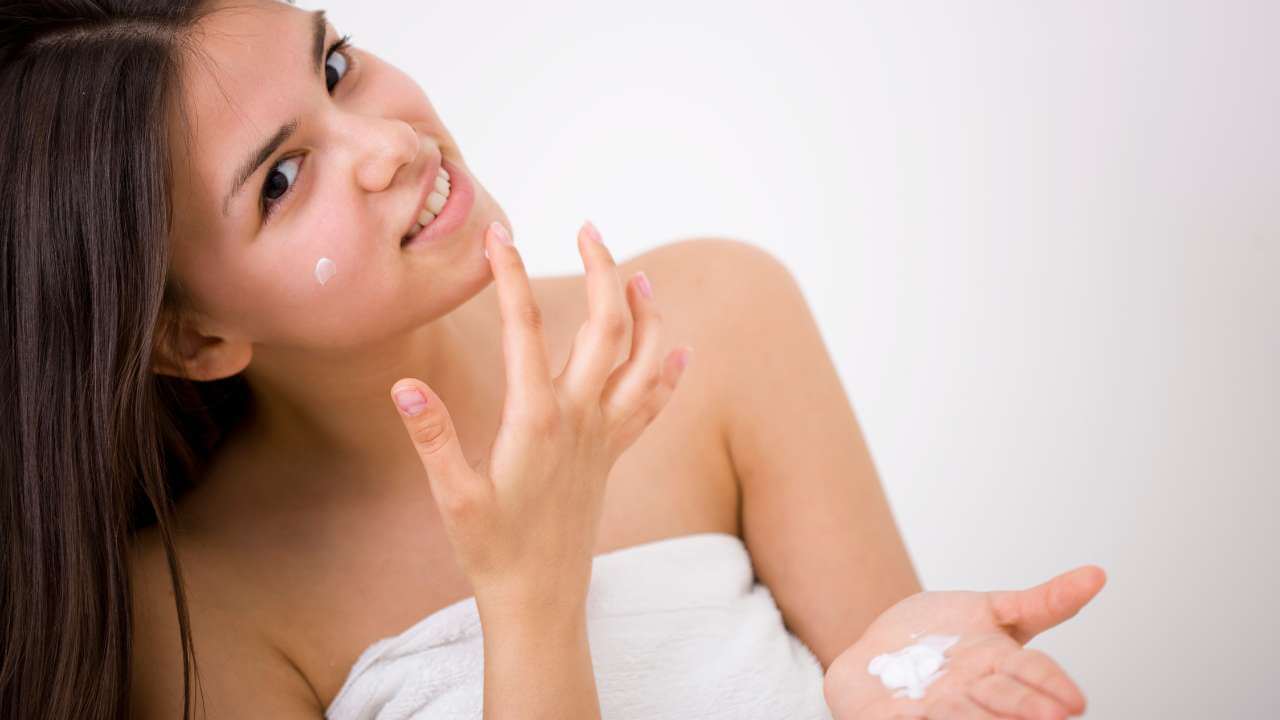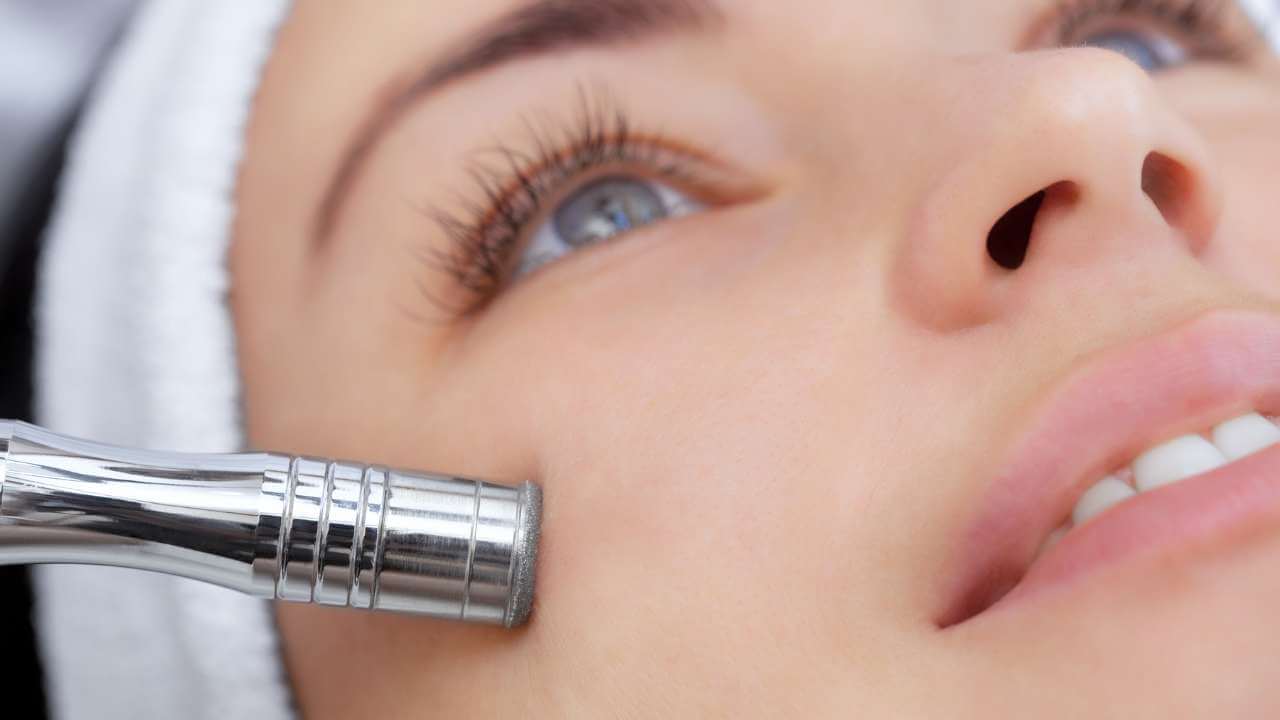Attention all skincare enthusiasts! Are you tired of dealing with the aftermath of acne, such as post-acne hyperpigmentation, dark spots, and acne scarring? These imperfections can make it challenging to achieve the flawless skin tone you desire.
But don't worry, we've got you covered with a comprehensive guide on how to get rid of hyperpigmentation from acne scars.
Dead skin cells and uneven skin tone are no match for the acne self-care tips and tricks we've compiled in this guide.
So sit back, relax, and get ready to say goodbye to those pesky dark spots and hello to smooth, even-toned skin. Let's dive in!
What is Hyperpigmentation?
Hyperpigmentation is a word that can seem a bit scary and unfamiliar to those who are not well-versed in skincare. However, it's a term that many of us are likely to come across at some point in our lives, especially if we've been dealing with skin issues like acne, sun damage, or aging.
So, what exactly is hyperpigmentation?
Think of your skin as a canvas, and your cells as paint. Hyperpigmentation occurs when your cells start to produce too much Melanin, causing it to darken the skin.[1] It's like when you're painting a picture, and you add too much of one color, causing it to overshadow the rest of your work.
That's what hyperpigmentation does to your skin- it overshadows your natural skin tone, causing unevenness and dark spots.
Causes of Hyperpigmentation
Some of the common causes of hyperpigmentation:
1․ Sun Exposure
Exposure to the sun's UV rays can stimulate excess melanin production in the skin, leading to hyperpigmentation, particularly in areas that are frequently exposed to the sun such as around the mouth, face, and hands.
2․ Hormonal Changes
Hormonal fluctuations, such as those that occur during pregnancy, can cause an increase in melanin production, resulting in dark patches or melasma.[2] Learn everything you need to know about melasma including what causes it and how to prevent it with our comprehensive guide from the link above.
3․ Skin Injuries
Injuries to the skin can lead to post-inflammatory hyperpigmentation (PIH), due to excess melanin production in response to skin trauma or inflammation such as acne, allergic reactions, and bug bites. Cuts, scrapes, and razor burn while shaving can also irritate the skin, causing tiny red bumps with a dotted or pitted appearance that may also eventually result in PIH.
4․ Genetics
Certain genetic conditions can cause hyperpigmentation or even hypopigmentation, such as albinism, which causes a lack of melanin in the skin and eyes.
5․ Medications
Certain medications, such as those used to treat acne, can cause hyperpigmentation as a side effect.[3]

But What About Hyperpigmentation Due to Acne Scars?
You've just gotten over the hurdle of a pesky pimple, but now you're left with a dark spot in its place - the unwelcomed visitor that just won't leave. You're not alone; this is a common occurrence known as hyperpigmentation from acne.
Post-inflammatory hyperpigmentation (PIH) from acne is the scientific term for this frustrating skin condition that can leave lasting marks on your complexion. While these dark patches are harmless, they can be a nuisance for those looking for a clear and even skin tone.
Just like freckles and birthmarks, hyperpigmentation from acne is a natural part of our skin's coloration, but it doesn't have to be permanent. There are many ways to treat and minimize the appearance of these dark spots.
So, if you're tired of feeling self-conscious about your post-acne dark spots, don't worry - we've got you covered.
Let's explore some tips and tricks to treat it effectively.

Treatment of Acne Related Hyperpigmentation
While hyperpigmentation caused by acne can be frustrating to deal with, it's important to remember that there is no overnight solution to clear it.
The first step to successfully treating pigmentation is to address the underlying cause, which in this case is acne.
With consistent treatment for acne, you can prevent new dark spots from forming and help existing ones fade over time.
1․ Topical Treatments
Various over-the-counter topical treatments can help fade hyperpigmentation acne scars.[4] Ingredients such as hydroquinone, vitamin C (azelaic acid), glycolic acid, salicylic acid, and kojic acid are effective in reducing the appearance of dark spots. These topical treatments work by inhibiting melanin production and promoting skin cell turnover.
2․ Sunscreen
Although the sun doesn't directly cause post-inflammatory hyperpigmentation acne, it can exacerbate symptoms, darken affected areas, and prolong the fading time.
To effectively treat acne hyperpigmentation, it's essential to protect your skin from the sun. Sun protection is a crucial part of any hyperpigmentation treatment plan, as sun exposure can worsen pigmentation.
One of the best products to use for acne hyperpigmentation is a physical sunscreen with an SPF of 30 or higher. Physical sunscreen creates a protective barrier that reflects UV light off the skin, reducing the risk of pigmentation worsening.
3․ Anti-inflammatory Products
In the case of acne, the body's inflammatory response can cause significant damage to the skin, leading to the formation of dark spots. However, incorporating anti-inflammatory skincare products into your daily routine can help combat this issue.
By choosing skincare products that contain anti-inflammatory ingredients and have antioxidant properties such as niacinamide, green tea, turmeric, and chamomile, you can help soothe and calm the skin while reducing the appearance of hyperpigmentation.
With a consistent and targeted approach, you can effectively tackle hyperpigmentation caused by acne and achieve a clearer, more even complexion.
4․ Chemical Peels
A chemical peel involves applying a solution containing mild acid to the skin, causing the outermost layer of the skin to peel off.[5] This process helps to fade dark spots and promote skin cell turnover. Chemical peels can be performed at different strengths and depths, depending on the severity of hyperpigmentation.
5․ Vitamin C
Vitamin C is a powerful ingredient for combating hyperpigmentation. It can help lighten existing dark spots while preventing new ones from forming.[6] Vitamin C also brightens and revitalizes the skin while stimulating collagen production. Add it to your skincare routine for a clearer, more even complexion.
6․ Retinol
Retinol, also known as Vitamin A, is an effective ingredient for reducing post-inflammatory hyperpigmentation caused by clogged pores and acne.[7] By increasing skin cell turnover rates, it helps shed old cells that clog pores and prompts the regeneration of new cells.
Clearing the pores and stimulating cell regeneration are essential factors in lightening and evening out the skin tone, especially when dealing with post-inflammatory hyperpigmentation.
Retinol can help address these issues by promoting healthy skin cell turnover and reducing the appearance of dark spots. Incorporate retinol into your skincare routine to achieve a clearer and more radiant complexion.
7․ Microdermabrasion
Microdermabrasion involves using a machine to exfoliate the outermost layer of skin, promoting skin cell turnover and reducing the appearance of hyperpigmentation acne scars.[8] This treatment can be done at a dermatologist's office or at home with a microdermabrasion kit.
8․ Laser Therapy
Laser therapy is a popular treatment option for hyperpigmentation acne scars.[9] It involves using a laser to target the pigment in the skin, breaking it down while promoting the growth of new, healthy skin cells. Laser therapy can be done at different depths and strengths, depending on the severity of hyperpigmentation.
9․ Microneedling
Microneedling involves using a device with small needles to create tiny punctures in the skin, promoting collagen production and skin cell turnover.[10] This treatment can help reduce the appearance of hyperpigmentation acne scars by promoting the growth of new, healthy skin cells.
10․ Prescription Medications
In severe cases of hyperpigmentation acne scars, prescription medications such as tretinoin and corticosteroids may be prescribed by a dermatologist. These medications can help reduce the appearance of hyperpigmentation by inhibiting melanin production and promoting skin cell turnover.
How to Prevent Acne Hyperpigmentation?
Preventing acne hyperpigmentation can be challenging, but there are steps you can take to minimize the risk of developing dark spots.
By adopting a consistent skincare routine and being mindful of certain habits, you can help prevent acne hyperpigmentation and achieve a clearer, more even complexion. Here are some tips on how to prevent acne hyperpigmentation.
1․ Treat Acne And Dark Spots Together
To prevent acne hyperpigmentation, it's important to address both acne and dark spots. When you treat acne, you eliminate the root cause of the dark spots.
2․ Treat Acne Early
Studies show that treating acne in its early stages can prevent it from getting worse and reduce the likelihood of developing pigmentation spots.
3․ Don't Pop Pimples
Picking, popping, or squeezing pimples can increase the risk of developing marks or scars, leading to hyperpigmentation.
4․ Use Non-Comedogenic Products
Using skincare products with high oil content, such as shea butter or cocoa butter, can clog pores and result in acne. Choose non-comedogenic products that won't block your pores.
5․ Be Gentle With Your Skin
Scrubbing your skin harshly won't clear your acne or pigmentation, and can make it worse. Instead, opt for gentle skincare like an acne body wash without harsh chemicals to prevent irritation and inflammation for a healthy skin barrier.
6․ Avoid Heavy Makeup
Makeup can cover blemishes, but heavy makeup can also cause new breakouts. Choose mineral makeup or lightweight products to avoid clogging pores and aggravating acne.
By following these preventative measures, you can help reduce your risk of developing acne hyperpigmentation and achieve a clearer, more even complexion.
Did We Mention...
Getting Rid of Hyperpigmentation From Acne FAQs?
Do you still have questions about getting rid of your hyperpigmentation from acne? You're not alone. This common skin concern can be frustrating to deal with, but there are many treatments and strategies that can help reduce the appearance of dark spots and promote a clearer complexion.
In this section, we've compiled some frequently asked questions about getting rid of hyperpigmentation from acne to help you better understand this issue and navigate the treatment options available.
Q: Why Hyperpigmentation from Acne Happens?
Hyperpigmentation from acne happens because the skin produces excess melanin in response to inflammation caused by acne. When a pimple or blemish occurs, the body sends white blood cells to the affected area to fight off bacteria and promote healing.
As a result, the skin becomes inflamed and triggers the production of excess melanin, leading to dark spots or patches of hyperpigmentation.
Q: Can People with Darker Skin Tones Effectively Treat Hyperpigmentation Caused by Acne?
Yes, people with darker skin tones can treat hyperpigmentation caused by acne. However, it's important to be mindful of certain treatments that may be more effective or less likely to cause additional pigmentation issues.
Consulting with a dermatologist who specializes in treating skin of color can help find the right approach for you.
Q: Is It Safe to Treat Hyperpigmentation from Acne While Still Having Active Acne?
Yes, it is safe to treat hyperpigmentation caused by acne while still having active acne. However, it's important to be gentle and avoid using harsh products that could further irritate the skin or exacerbate acne.
Finding a skincare routine that addresses both concerns can help promote a clearer, more even complexion.
Q: How Can I Prevent Future Breakouts While Treating Hyperpigmentation from Acne?
Preventing future breakouts while treating hyperpigmentation from acne is essential to achieving long-term results. This can be achieved by adopting a consistent skincare routine that includes products formulated for your specific skin type, avoiding harsh and abrasive treatments, and maintaining a healthy lifestyle that includes a balanced diet and regular exercise.
Additionally, consulting with a dermatologist can help identify any underlying factors that may be contributing to acne and develop a personalized treatment plan.

The Final Mention
Hyperpigmentation caused by acne can be a frustrating and challenging issue to deal with. However, with the right knowledge and tools, it's possible to treat acne scars and reduce the appearance of dark spots and achieve a clearer, more even complexion.
From topical treatments to skincare routines, there are many ways to treat hyperpigmentation acne. By incorporating these strategies into your daily routine and protecting your sensitive skin from the sun, you can effectively tackle this common skin concern.
If you found this article helpful and want to stay up-to-date with the latest skincare tips and tricks, sign up for our newsletter. Our newsletter offers exclusive content and expert advice on all things skincare.
Don't miss out on the latest information – sign up today!
✅ 10 Sources
HealthMention only uses sources from authoritative and reliable resources, such as peer-reviewed studies, to strengthen the accuracy of our content.
- Desai SR. Hyperpigmentation Therapy: A Review. The Journal of Clinical and Aesthetic Dermatology. 2014;7(8):13. https://www.ncbi.nlm.nih.gov/pmc/articles/PMC4142815/
- Bolanca I, Bolanca Z, Kuna K, et al. Chloasma--the mask of pregnancy. Collegium Antropologicum. 2008;32 Suppl 2:139-141. https://pubmed.ncbi.nlm.nih.gov/19140277/
- Hassan S, Zhou X. Drug Induced Pigmentation. PubMed. Published 2021. https://www.ncbi.nlm.nih.gov/books/NBK542253/
- Nautiyal A, Wairkar S. Management of Hyperpigmentation: Current Treatments and Emerging Therapies. Pigment Cell & Melanoma Research. Published online May 17, 2021. doi:https://doi.org/10.1111/pcmr.12986
- Samargandy S, Raggio BS. Skin Resurfacing Chemical Peels. PubMed. Published 2020. https://www.ncbi.nlm.nih.gov/books/NBK547752/
- Jm P, Ac C, Mcm V. The Roles of Vitamin C in Skin Health. Nutrients. Published August 12, 2017. https://pubmed.ncbi.nlm.nih.gov/28805671/
- Ortonne JP. Retinoid therapy of pigmentary disorders. Dermatologic Therapy. 2006;19(5):280-288. doi:https://doi.org/10.1111/j.1529-8019.2006.00085.x
- 1.Shah M, Crane JS. Microdermabrasion. PubMed. Published 2020. https://www.ncbi.nlm.nih.gov/books/NBK535383/
- 1.Agbai O, Hamzavi I, Jagdeo J. Laser Treatments for Postinflammatory Hyperpigmentation. JAMA Dermatology. 2017;153(2):199. doi:https://doi.org/10.1001/jamadermatol.2016.4399
- Al Qarqaz F, Al-Yousef A. Skin microneedling for acne scars associated with pigmentation in patients with dark skin. Journal of Cosmetic Dermatology. 2018;17(3):390-395. doi:https://doi.org/10.1111/jocd.12520









